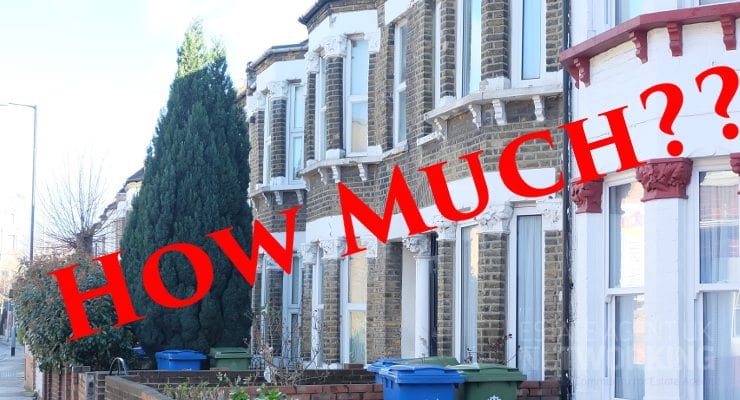What does it take to reach the correct valuation on a property?
When it comes to valuing a property, the whole basis is highly subjective. Two individuals can look at the same property and reach two very different figures in terms of what they are willing to pay. The price one investor considers “fair” is not the price the other investor is willing to pay.
It’s important to see and know where the value lies within the property purchase, if you are to see opportunity and future profit. Otherwise you will only see expense and risk.
Paying over the odds for a property or selling it too cheaply will mean you either make or break the deal. If you want to be a successful property investor, you will need to be clear on the numbers and while it is not required to be a mathematician, you must have the basic knowledge of valuation.
We always apply three methods when it comes to reaching a valuation. Namely these are The Direct Comparison Method, The Investment or Yield Method and finally the Residual Method.
All three methods are up for discussion and below, FJP Investment will explain further.
The Direct Comparison Method
This method of valuing a property is done by conducting market research and comparing similar type properties in a similar market in a similar timeframe.
The more similar the other properties are, the easier and far more accurate the valuation will be. For example, a 2-bedroom flat is up for sale in a development which is 10 years old and has 90 flats. As the person valuing the property, you will look for recently sold flats that are in the same development, this will make valuing the property easy. In an ideal scenario, you will be comparing against similar size properties that have the same number of bedrooms.
When two similar sizes are not possible, for example you have a 2 bedroom to value but only have data from 1 and 3 bedroom flats, you must adjust the figures.
If you have 2 bedroom flats that recently sold in the same development for £250,000, then it is safe to say the valuation will come in around £250,000 to £260,000
There are of course other variables such as, does the flat come with a parking space, does the flat have a storage locker in the garage. The parking space alone could add or subtract £15,000 from the asking price.
The Investment or Yield Method
This method is my favourite, this is about finding property deals and valuing them based on the tenant that is currently renting the property. If buying the property for £200,000 you need to know if £700 in rent is going to be enough to cover the mortgage and create enough cash flow to cover the maintenance.
This is very much about calculating cash flow. It is vital you get good at the numbers and learn to analyse deals, as this is often the difference between success and failure.
Paying too much for the property and then finding yourself renting the property to tenants for less than the mortgage, will mean you having to subsidise the monthly payments to the mortgage provider.
While this is not the only method in valuing a property, it is a solid option for you to consider. You should look at similar properties on the market, you’ll want to know what those are renting for and whether the prospective property could achieve a similar yield.
The Residual Method
This is all about assessing the value of land or even the building before a redevelopment or refurbishment project has taken place. The trick here is to appraise whether a project is worth undertaking before doing anything with your investment capital. You will want to know whether the project is feasible or not.
You are looking to find out if the residual value of the property is there once you have completed the required investment / work to get it to the standard required. You’ll want to work out the end value after all construction costs, fees and interest and conclude whether there is any profit left in the deal.
While it is difficult to calculate what the actual costings will be, you will be able to get a rough idea of what it is going to cost to put a new kitchen and bathroom in the property.
It is important to get the numbers right on this type of deal, as you may find yourself out of pocket if the building costs come in way over budget. Much of this method is subjective, though the valuation and analysis will get better as time goes by. You will find you have a good team around you to complete all the required work you want to undertake on future projects.
FJP Investment is a team of investment specialists sourcing a wide range of investment opportunities both in the UK and overseas. Notable launches include the High Street Group Loan Note Investment.









